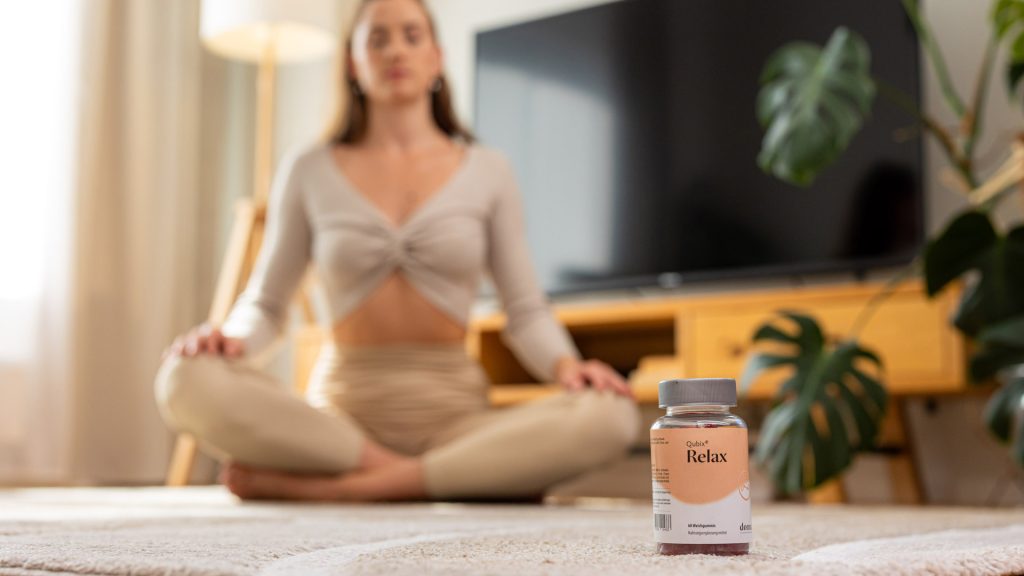What are some of the best ways to boost brain health and combat stress
- READING TIME 6 MIN
- PUBLISHED February 20, 2024
- AUTHOR Donna
Key takeaways
- While what we eat is fundamental, it’s the holistic approach to nutrition, inspired by traditions like the Mediterranean diet, that truly supports brain health.
- Beyond the number of hours we sleep, the quality and consistency of our slumber play an equally important role.
- However, our cognitive clarity is influenced by more than just sleep and food; you should also consider hydration, gut health and social interactions.
What are some of the best ways to boost brain health and combat stress
In the same way we prioritise physical well-being, cognitive health also needs attention and care. From the food we eat to the activities we engage in, every choice matters.
A healthy brain is essential for our well-being today, but it will also help us safeguard against age-related issues in the future.1 With this in mind, here are some practical strategies to boost brain health and combat stress.
Reevaluate your diet and nutrition
Diet plays a key role in keeping our brains sharp and healthy. The right nutrients can support your current and future cognitive abilities.2
Drawing from the Mediterranean diet, known for its various health benefits, consider the following foods when planning your meals:3
- Antioxidant-rich foods: blueberries, nuts and dark chocolate are proven to enhance brain function and protect against age-related decline.4, 5
- Omega-3 fatty acids: found abundantly in fatty fish, seaweed and algae, these healthy oils are also vital for cognitive and emotional well-being.6
- Whole grains, fruits and vegetables: regular consumption can help prevent chronic diseases and support brain health.
- Limit sugar and processed foods: reducing intake of junk food and soft drinks, for example, can prevent cognitive decline and decrease the risk of neurological diseases.
- Supplements: saffron, for example, supports cognitive function and even has antidepressant effects.7 B-complex vitamins also aid brain health and counteract stress impact.8 Find out more about these nutrients and their role in promoting relaxation with Donna’s QUBIX RELAX supplemental gummies.

Move, exercise, walk, dance
Regular physical activity is linked to improved memory and a 31 percent lower risk of dementia in older adults.9
The best way to approach exercise is to mix different types of workouts. Activities like walking, running, swimming and cycling, for example, stimulate the release of feel-good chemicals called endorphins. Don’t forget to include strength training too; twice a week is sufficient for most people. Practices like yoga or pilates can also help improve balance and flexibility, in addition to enhancing mental well-being.
Overall, aim for 150 minutes of moderate exercise or 75 minutes of intense exercise weekly.10
Prioritise sufficient sleep
During sleep, the brain efficiently conducts maintenance tasks, clearing out daily toxins, consolidating memories and repairing cellular damage.11
To maintain a healthy sleep routine, first make sure you expose yourself to sunlight or artificial light during the early hours to regulate your circadian rhythm.12 Then aim to have a consistent sleep schedule, avoiding caffeine eight to ten hours before bedtime, and minimise bright lights from 10 pm to 4 am. For the majority of people, a consistent sleep routine of about seven to nine hours a night should suffice to feel well-rested in the morning.13

Stay hydrated
The human body consists of about 50 to 70 percent water, which is crucial for various bodily functions, including brain activity.14 Even mild dehydration can cause a significant decline in cognitive abilities and result in symptoms like fatigue, “brain fog” and difficulty focusing. Since the brain is 85 percent water and cannot store it, consistent hydration will ensure optimal brain function and clarity.
Adult men+ should aim to consume about 3.7 liters and women+ about 2.7 liters of fluids daily, which includes intake from both drinks and food.15 The often-recommended eight glasses of water a day is a general guideline, but individual hydration needs can vary based on factors like exercise, environment and health conditions. Simply make sure to drink water whenever you feel thirsty.
Limit toxins like alcohol and cigarettes
Even moderate alcohol consumption may reduce overall brain volume. Increasing daily alcohol intake is linked to brain changes equivalent to aging, with two drinks a day resembling two years of aging. According to one research analysis, even light to moderate drinking could negatively affect brain structure.16
Tobacco also has a bunch of negative effects on both brain health and overall well-being. Higher levels of nicotine in the blood were linked to lower cognitive test scores, regardless of other health conditions.17
Remember: healthy gut, healthy mind
The bacteria in our intestines are not just passive residents; recent research found they can produce substances that directly influence our brain. These gut bacteria can impact our emotions, cognitive functions and even our susceptibility to brain diseases like Alzheimer’s and Parkinson’s.18
A diverse diet supports a healthy and varied gut microbiome. Consuming a range of vegetables, legumes, beans and fruits provides essential fiber, promoting the growth of beneficial gut bacteria like Bifidobacteria, which have a direct impact on brain function.
Fermented foods, such as kimchi and tempeh, are rich in lactobacilli which can positively influence both gut and brain health. Likewise, prebiotics, abundant in many dietary fibers and complex carbs, support the growth of beneficial bacteria in the gut. These foods also contribute to reduced insulin and cholesterol levels, which again benefit brain health and support disease prevention.19
Combat stress with mindfulness and social interactions
Stress is sometimes an unavoidable part of modern life. However, there are ways to mitigate its influence.
Mindfulness, for example, can strengthen attention and lead to positive changes in the brain. It enhances our ability to process sensory information and helps us focus better. Meditating, for instance, can decrease stress hormones and boost emotional well-being.20

Controlled breathing is another way to modify brain signals and, with that, mood and immune responses. Breathing exercise may also influence the autonomic nervous system, which manages functions like heart rate.
Finally, simply being together with loved ones and creating memories with them offers fundamental emotional support. Maintaining social connections is therefore essential for mental well-being.21
Maintaining brain health is worth the effort
In the pursuit of optimal well-being, prioritizing brain health is critical. The choices we make daily, from the food we eat to our sleep routine, will make all the difference right now but also offer dividends long in the future.
REFERENCES
- https://www.who.int/health-topics/brain-health#tab=tab_1
- https://www.ncbi.nlm.nih.gov/pmc/articles/PMC2805706/
- https://www.healthline.com/health-news/8-ways-the-mediterranean-diet-can-help-you-live-a-longer-and-healthier-life
- https://www.ncbi.nlm.nih.gov/pmc/articles/PMC7828789/
- https://www.ncbi.nlm.nih.gov/pmc/articles/PMC9311747/
- https://www.healthline.com/nutrition/omega-3-fish-oil-for-brain-health
- https://www.webmd.com/vitamins/ai/ingredientmono-844/saffron
- https://www.ncbi.nlm.nih.gov/pmc/articles/PMC6770181/
- https://n.neurology.org/content/92/8/362
- https://www.mayoclinic.org/healthy-lifestyle/fitness/expert-answers/exercise/faq-20057916
- https://www.nih.gov/news-events/nih-research-matters/how-sleep-clears-brain
- https://www.hubermanlab.com/newsletter/toolkit-for-sleep
- https://www.mayoclinic.org/healthy-lifestyle/adult-health/in-depth/sleep/art-20048379
- https://www.mayoclinic.org/healthy-lifestyle/nutrition-and-healthy-eating/in-depth/water/art-20044256
- https://www.mayoclinic.org/healthy-lifestyle/nutrition-and-healthy-eating/in-depth/water/art-20044256
- https://penntoday.upenn.edu/news/one-alcoholic-drink-day-linked-reduced-brain-size
- https://www.heart.org/en/news/2022/02/03/smoking-harms-brain-health-regardless-of-other-health-conditions
- https://www.ncbi.nlm.nih.gov/pmc/articles/PMC4259177/
- https://www.healthline.com/nutrition/improve-gut-bacteria
- https://www.apa.org/topics/mindfulness/meditation
- https://www.ncbi.nlm.nih.gov/pmc/articles/PMC2921311/
RELATED ARTICLES
Explore more
Feed your curiosity with more content. Dive deeper and explore our selected articles, curated just for you.



